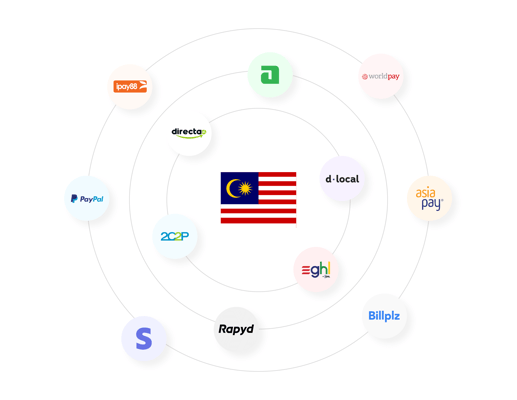It's never been easier for businesses to receive payments from customers thanks to payment gateways, but the document submission process can be overwhelming. Discover how our blog provides tailored guidance on what documents are required based on your specific business type! We'll also define KYC and KYB and state their importance for businesses. And by the end, you'll be all set to integrate the payment gateway of your choice.
Major Types of Businesses in India
-1.png?width=2932&height=3900&name=Infographic%20-%201%20(5)-1.png)
1. LLP (Limited Liability Partnership)
LLP is a blend of corporation and partnership. The partners involved in the business have limited liability, as the name suggests. It simply means the partners' personal assets won't be used for clearing debts in any case. Usually, auditing companies, IT companies, dental offices, and business consultancies register for LLP.
2. NGO
NGO stands for non-governmental organization. Such organizations are not-for-profit establishments that operate independently without government obligations. NGOs are set up at local, national, or even international levels to achieve a shared political or social goal.
For instance, Goonj is an NGO undertaking humanitarian aid, disaster relief, and community development in several states across India. Another great example is Amnesty International. It's an international NGO that operates with a motive to end human rights abuse.
3. Private Limited
Ltd. or Private Limited companies are the ones handled by a small number of people. Such businesses don't issue stocks to the general public for investments. Common examples of Pvt. Ltd. companies are Google India Pvt. Ltd.
4. Partnership
Partnership firms or businesses are the ones wherein an agreement exists between two or more individuals who act as co-owners. Everything from income and losses to responsibilities within the organization is distributed in a partnership arrangement.
5. Public Limited
A Public Limited company is an organization that issues shares to the general public but simultaneously has limited liability. Common examples of Public Limited companies are SAIL Ltd, ONGC Ltd., and BHE Ltd.
6. Sole Proprietorship
A Sole Proprietorship is a business entity that is owned, controlled, and managed by a single individual who's liable for all profits and losses the business incurs. Usually, small business owners, such as local clothing stores, freelancers, consultants, etc., register this business type.
7. Trust
A trust is a relationship wherein a trustor allows the trustee to hold the title to assets such as cash or property for the benefit of a 3rd party, usually a family member (beneficiary). Primarily, trusts are set up to legally protect the assets of the trustor.
8. HUF (Hindu Undivided Family)
Hindu Undivided Family is a business type wherein all individuals are direct descendants of a common ancestor, including wives or unmarried daughters. You cannot create HUF using a contract, and it's automatically established within a Hindu Family.
Good read: Top 12 Payment Gateways in India
What is KYC?
KYC stands for know your customer. It's an ID verification requirement that banking institutions such as banks and other NBFCs use to verify customer identities. The primary motive of KYC is to prevent fraud and onboard only genuine customers to the platforms. Only if the KYC process is successful, the customer gets access to the business's products or services.
Usually, the customers must submit government-issued documents such as proof of identity, address, full name, dob, etc. Such documents are then verified against official records, after which the result is declared. And fortunately, all this happens online (eKYC) for the majority of businesses.
What is KYB?
KYB stands for Know Your Business. Think of KYB as the business counterpart for KYC. In KYB, businesses act as customers, and other companies (hosts) verify their identities. Also, in the case of KYBs, businesses may have to present a lot more documentation than single individuals.
For instance, as a business, a payment gateway might ask you to submit documentation such as:
- Registration Proof
- Business Name
- Unique Identification Number
- Date of Incorporation
- Place of Business
- Nature of Business
Similar to KYC, the majority of businesses have integrated eKYB solutions. This way, businesses can submit all the documents online and verify their IDs instantly, regardless of location.
Good read: Top payment methods in India
Why do Payment Gateways Require KYC/KYB?
The primary purpose of a payment gateway is to allow merchants to accept, process, settle and manage payments. And as this involves confidential user data, business data, and, most importantly, monetary assets, the risk of fraud increases. However, using KYC/KYB procedures, businesses can ensure their customers are actually who they claim to be and not someone else. This way, businesses can protect themselves and their customers from money laundering and other types of fraud.
Type of Businesses and Documentations Required?
Here’s a tabular representation of the documentation different business types need for
| Business Type |
Proof Required |
Supporting Documents |
|---|---|---|
| LLP/Private Limited/Public Limited |
|
|
| Sole Proprietorship |
|
|
| Partnership |
|
|
Trust/NGO |
|
|
| HUF |
|
|
Wrapping Up
For merchants and businesses ready to take their payment gateway integration up a notch, gathering the required documents is your first step. With our comprehensive KYB process in place, there's no need for lengthy searches or paperwork hiccups: you'll be accepting payments seamlessly with minimal time investment!
.png?width=123&height=71&name=inai%20logo%20-%20dark%201(1).png)


.png?height=400&name=Header%20-%20Payment%20Gateways%20in%20Kuwait%20(2).png)


